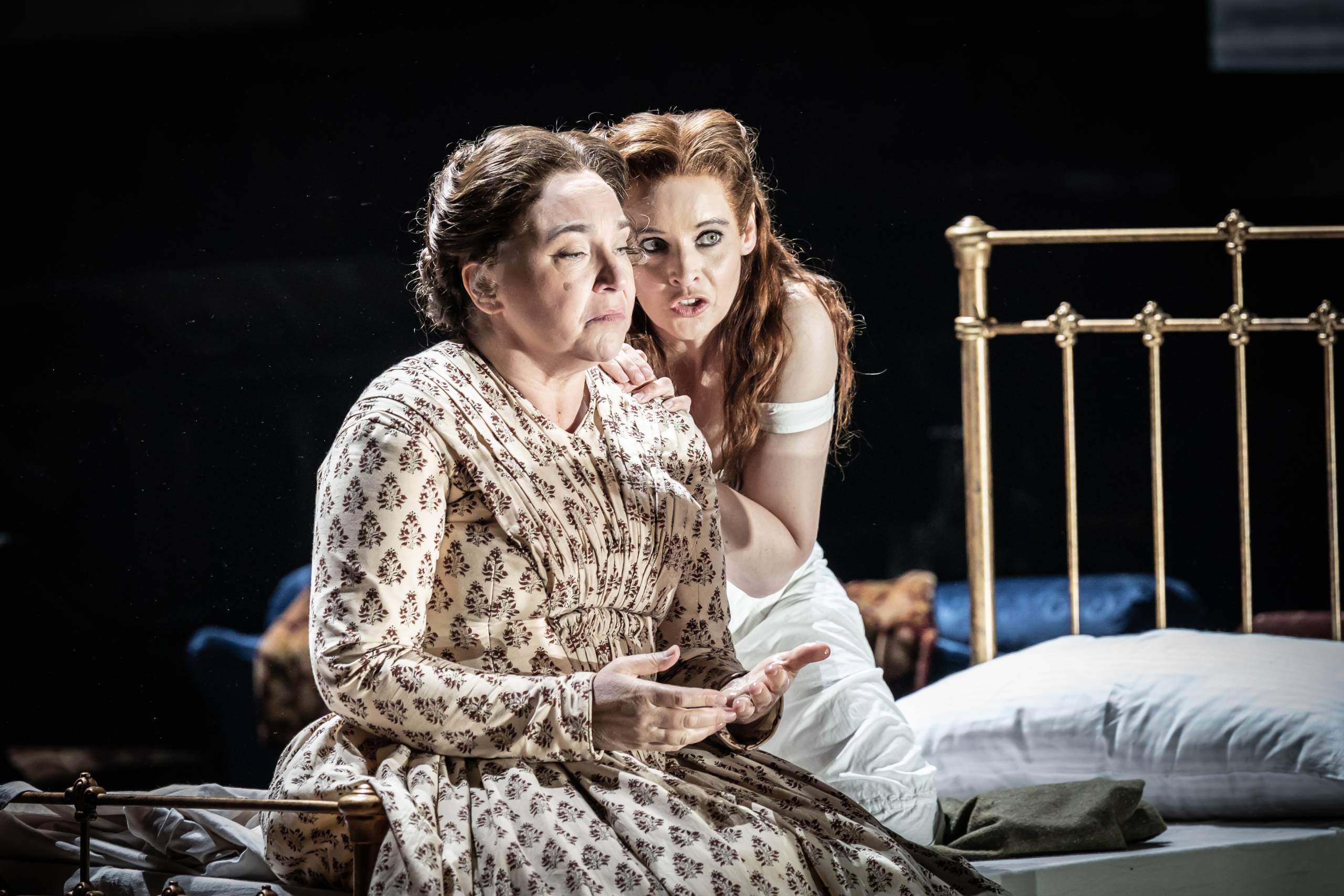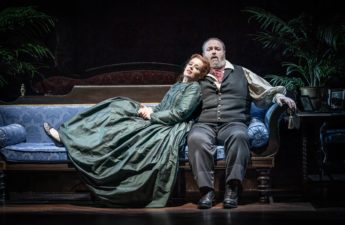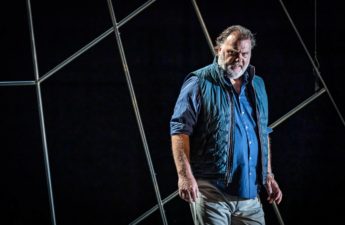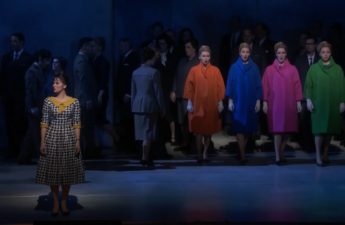The work (for it is not only music, but also writing) of Richard Wagner is surrounded by a characteristic nimbus in the musical world. To outsiders, Wagnerists even appear as a particular of sect. One makes a pilgrimage to Bayreuth, faints in the legendary stuffiness of the Festspielhaus. Among the singers, too, these Wagnerians are a kind of superhuman beings with unlimited stamina, an incredible dynamic range, superb acting skills. Horned helmets must be earned. The belief in endless melody and endless harmony is mandatory. The threshold for entry into the realm of Wagner’s musical theatre is therefore relatively high.
As a person with an innate excess of perversity, in secondary music school and at university, when Wagner was an important part of my education I persistently maniacally claimed that I could not stand his music, while repeating the unsupported self-confessed clichés that, yes, he instrumented magnificently, but after all, there was nowhere to breathe! However, since my spite also works, well, against myself, a year ago, in an act of self-sabotage, I decided to conduct an experiment. On myself, of course. Research hypothesis: I can’t stand Wagner. Method: experiencing Wagner live, in the theatre. Live and in the theatre, because that was the only thing that guaranteed that I would persevere to the end (pushing through in the middle of a performance to the exit I consider inelegant). The project was spread over three years and is not funded by any grant.
The first part of the experiment, which took place almost a year ago, was like dipping one’s toes in, possibly going in up to one’s ankles. The Flying Dutchman at Grange Park Opera turned out to be a wonderful opera, the chorus of Steuermann! Lass die Wacht! comes back to me as an earworm regularly. I did not choke. It was a well-directed and, above all, superbly sung, orchestrated and acted performance (you can actually check it out for yourself, the recording is on YouTube: Act 1, Act 2, Act 3).
The second part of the experiment was conducted last month. This time the Wagnerian water was already up to my neck, but you could still feel the bottom underfoot. Without changing the circumstances – that is, in the same pleasant company and in the same place – I watched (and there was plenty to look at!) and listened (there was, of course, plenty to listen to) Tristan and Isolde. An arch-romance, an arch-drama, an arch-Wagner.
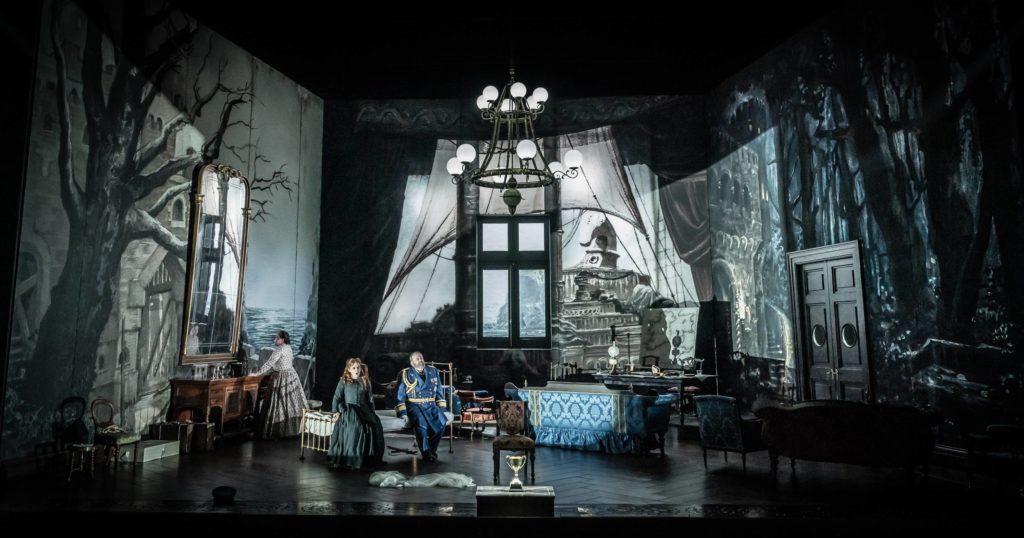
Unlike the ascetic and recycled staging of The Flying Dutchman, the staging of Tristan and Isolde was very rich. Characters in Victorian costumes populated the stage with old-style painted prospectuses, furnished, with paintings, a huge chandelier, numerous props – it looked a bit as if a bygone Lehmhaus of some bourgeois theatre had been swept through. But these were not random brochures and props – the vast majority referred to past stagings of Wagner’s work or to iconography associated with Celtic legend. I am not an expert on the author of The Ring of the Nibelung and perhaps never will be, so I leave the assessment of the sense of these references to more competent people, in this case the irreplaceable Dorota Kozińska – I recommend her text Isolde the Fair and Brunhilde of the White Hands. For me, the scenographic splendour suited the first two acts, but in the third act I lost the thread of the staging and directing concept. In particular, Tristan’s disappearance just after his last notes did not appeal to me. Yes, he died. But what does it mean to leave Isolde there alone, liberated? Undoubtedly, she is a ‘universal and timeless’ heroine, as the cliché goes, which we used to make fun of in secondary school Polish classes – after all, she strips off her Victorian clothes and walks away into the light in jeans. What definitely won me over in the production was the use of space. But what is this timelessness of hers? What was compelling – also sonically – was the use of space off stage. The music came from the high floors of the auditorium. The chorus was set up there, and there Brangäne stood guard over the lovers’ night, singing her song. In fact, in the end, the staging was moderately successful – a couple of decisions that were not entirely understandable did not spoil it completely.
The beginning of the Vorspiel found me still distracted; I was not immediately taken in by the flow of the music. Perhaps this was because Stephen Barlow, the conductor, adopted the concept of a slow, gradual unfolding of the narrative. Thus, the introduction did not consist of incoming and receding waves, but rather was a barely perceptible progressive tide. And, as with the tide, inevitability became paramount. One very long narrative arc, consistent and inexorable – perfectly introducing the fateful tale. The choice of tempos was atypical at times: King Marke’s monologue, for example, was sung in high emotional tension and quite fast, and in one of the orchestral sections the slow tempo almost suffocated the poor oboist! Unusual, however, does not mean nonsensical. The music carried the drama and remained subordinate to the story and the singing. There was none of the stifling mass I have accused Wagner of for so many years – rather a clarity in the Leitmotiv leads and in the prominence of the solo passages.
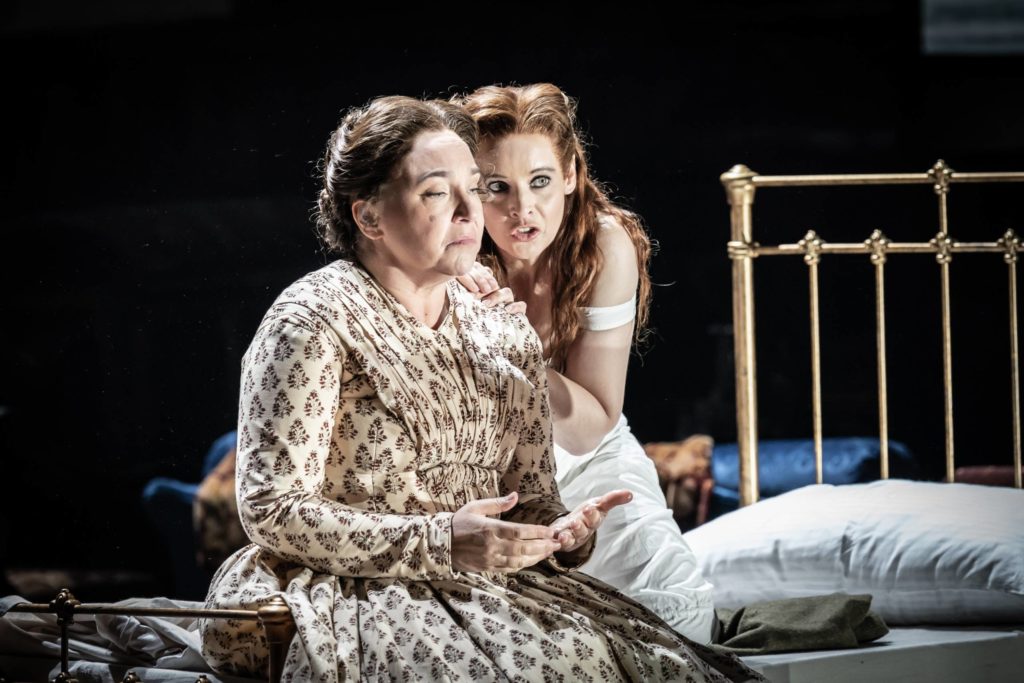
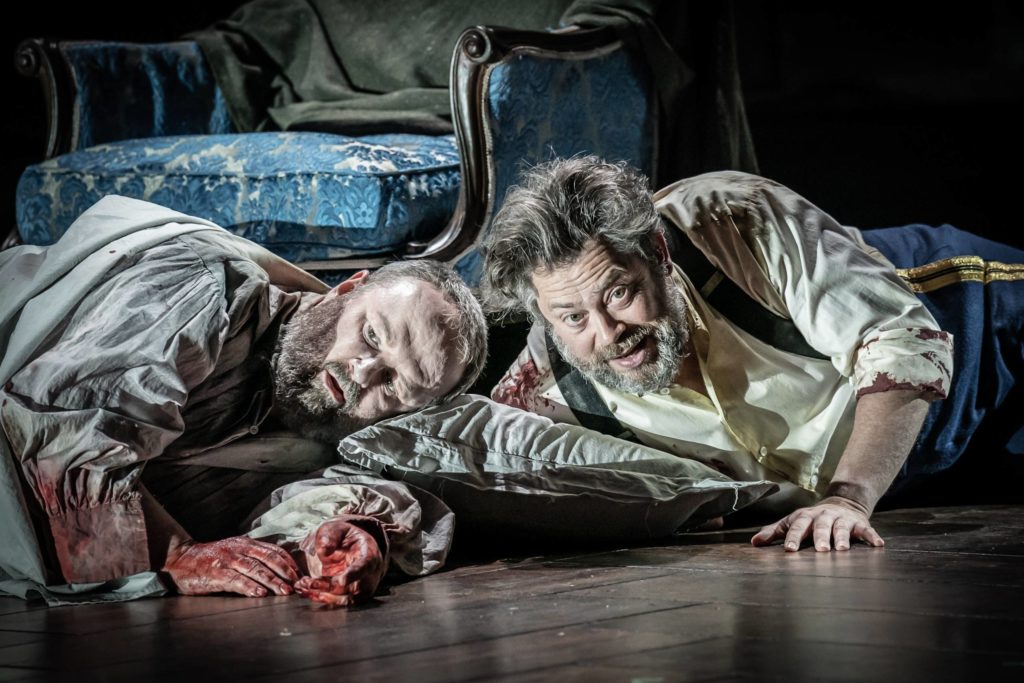
The singers proved to be the show’s greatest asset. Rachel Nicholls (last year’s Senta) did what she wanted with her voice. In the first act she showed herself to be the most hysterical woman (micro-glissandos, unexpected changes of tone – also to ugly, sinister laughter), in the following acts she became known as an outstanding lyricist. In addition to Senta, I heard the soprano live in Joseph Haydn’s Seasons and I still can’t get over how such different music can be sung so well. Gwyn Hughes Jones’ Tristan was sort of… fragile. The thing was not in the weakness of his voice (although he was no match for the rest of the cast in volume), but rather in the building of the character – full of doubt, remorse towards Marke, fear of being caught and, perhaps, of losing that precarious, forbidden relationship with the absolutely determined and somewhat overbearing Isolde. The hero’s madness in the third act did not stem from a forced separation from his beloved, nor from the fever caused by his wound – rather, it was an escape from being disappointed by his own actions, from betraying his friend, from destroying Isolde’s life. The moment when Tristan realises how much he had failed Marke was one of the most beautiful and painful in the entire play. It is also one of the moments in which one can emphatically realise how important acting and directing are in opera in addition to singing, and how important is the illustration of credible emotions and relationships. The libretto may be completely idiotic from the point of view of logic and realism, the conventions of the genre for many people insurmountable, but it is the emotions and relationships – thanks to the music – that are as real as possible (and ‘universal and timeless’). At Grange Park, Brangäne truly loved Isolde, Tristan truly loved Kurwenal – both of them, by the way – Christine Rice and David Stout were vocal and acting marvels. Brangäne’s song will remain one of my beloved parts of Tristan and Isolde.
The most unexpected moment, however, turned out to be the entrance of King Marke in the second act. Matthew Rose had already appeared silently on stage at the end of Act 1, so his presence could not be ignored, it was impossible to pretend that Tristan and Isolde were alone and free in their love – and it was hard to believe that these two were acting behind the ruler’s back. Marke’s monologue probably electrified everyone from the first sound. I have not experienced anything like it before – a spark literally jumped all over the audience. If I was already beginning to get a little overwhelmed by the music and the ghostiness of the overly cosy theatre, I regained my perceptual focus in a split second. Matthew Rose’s King Marke is a man betrayed, wronged. Impressive, but not threatening. Hurt to the core by his beloved and closest friend, an alumnus he counted on like no one else. Lonely. This passage, sung in a disappointed but still warm voice, evoked genuine tears in the eyes of quite a few listeners sitting among the audience.
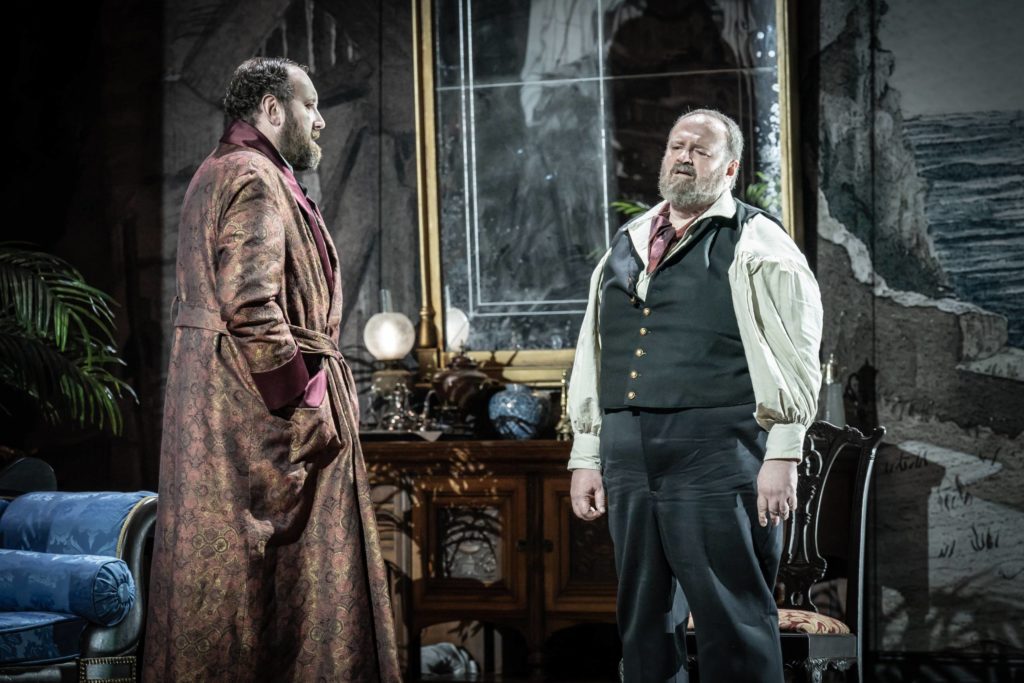
So far, therefore, I am losing out to Wagner. Which is to say, I am actually winning – I understand what those who have come to love his music mean, and I can experience some of that emotion myself. So anti-Wagnerians, don’t lose hope – give the composer a chance, but most certainly in person, absolutely in the making that has the potential to be excellent (and then hope that this potential is realised).
And the third and, for now, final stage of the experiment on myself is to be… the entire Ring of the Nibelung in 2024. In a different theatre, but still not in Bayreuth – I’m not ready for that yet. We’ll stay on safe English soil. Keep your fingers crossed that no unforeseen circumstances thwart the crazy plan.
Translated by Aleksander Ptak

